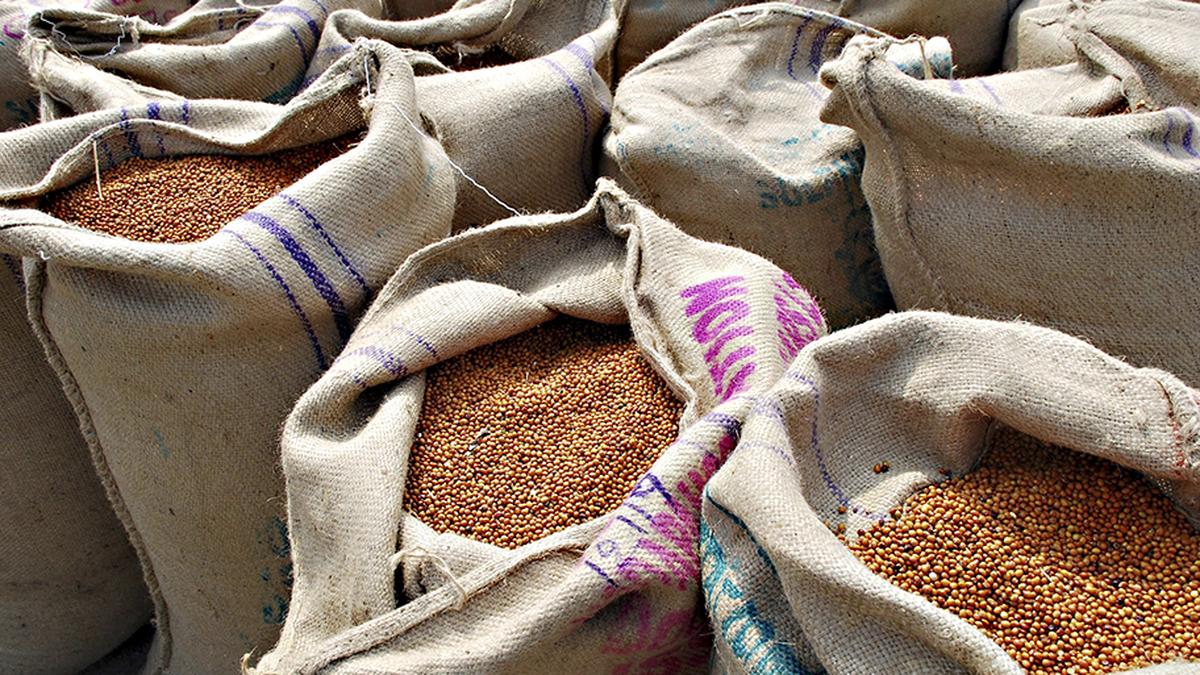
Delayed rains hit cultivation of pulses, prices on the rise
The Hindu
Rains have caused woes for those living in low-lying areas, but have helped Kharif crops gain momentum in Telangana. Prices of processed pulses have risen 10-20% in the last 3-4 weeks.
The ongoing spell of rains may have been pouring woes for those living in low-lying areas of towns and cities and may have helped sowing/transplantation of Kharif crops gain momentum in Telangana, but the delay in their intensification has already done the damage for cultivation of pulses.
The decline in their extent not only in Telangana and Andhra Pradesh but also in neighbouring Karnataka and Maharashtra, from where the State gets most of its supplies, as also in other States appears to have adverse impact on the prices of processed pulses already as they have soared by 10% to 20% during the last three-four weeks.
“Price of processed redgram, one of the key ingredients in daily diet, has increased by ₹10 to ₹15 a kg even in street-corner shops where it has reached ₹145 to ₹155 a kg”, a retail vendor Babulal said. It has gone up in the range of ₹155 to ₹175 a kg in supermarkets too.
According to the Agriculture Department, the cultivation of pulses has not reached even half the normal extent for the season even at the end of July third week. As on July 19, redgram was sown in 3.52 lakh acres followed by greengram in 0.38 lakh acres and blackgram in 0.15 lakh acres.
Rains for the last two weeks have helped sowing/transplantation of Kharif crops pick up speed as the extent has reached about 57.25 lakh acres against 53.67 lakh acres covered by the same time last year. It’s for the first time this season, the cultivation of Kharif crops has overtaken the extent for the corresponding period last year.
“Although rains have done a world of good for the Kharif cultivation, the suitable time of cultivation of redgram, greengram and blackgram has already lapsed as sowing of the short duration pulses – greengram and blackgram – from now on is expected run into harvesting troubles as they would reach harvesting stage during the October/November heavy rains period”, a senior officer said preferring to be anonymous.
The agriculture authorities said cotton, one of the two major crops in Kharif, might not reach the planned extent of 50 lakh to 60 lakh acres as it is sown in 37.98 lakh acres so far and there is hardly any time left for its recommended sowing now. The decline in area of major crops is expected to be occupied by paddy even with later transplantation due to late rains, despite the government plans to advance its cultivation in Kharif to advance Rabi paddy to prevent the latter from suffering damage in untimely rains.











